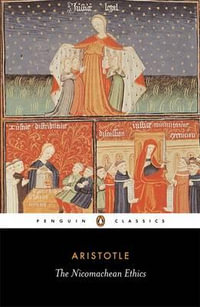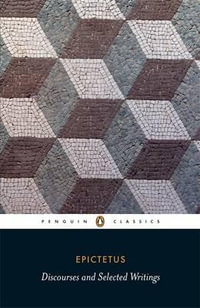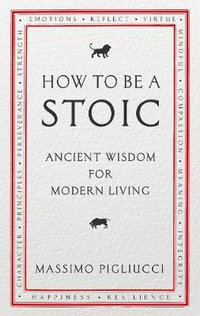
Letters from a Stoic
Paperback | 1 July 1974 | Edition Number 1
At a Glance
Paperback
$17.99
Aims to ship in 5 to 10 business days
ISBN: 9780140442106
ISBN-10: 0140442103
Series: The Penguin Classics L210
Published: 1st July 1974
Format: Paperback
Language: English
Number of Pages: 256
Audience: General Adult
For Ages: 18+ years old
Publisher: Penguin UK
Country of Publication: GB
Edition Number: 1
Dimensions (cm): 14.5 x 12 x 1
Weight (kg): 0.19
Shipping
| Standard Shipping | Express Shipping | |
|---|---|---|
| Metro postcodes: | $9.99 | $14.95 |
| Regional postcodes: | $9.99 | $14.95 |
| Rural postcodes: | $9.99 | $14.95 |
How to return your order
At Booktopia, we offer hassle-free returns in accordance with our returns policy. If you wish to return an item, please get in touch with Booktopia Customer Care.
Additional postage charges may be applicable.
Defective items
If there is a problem with any of the items received for your order then the Booktopia Customer Care team is ready to assist you.
For more info please visit our Help Centre.
You Can Find This Book In
This product is categorised by
- Non-FictionPhilosophyHistory of Western PhilosophyAncient Western Philosophy
- Non-FictionPhilosophyEthics & Moral Philosophy
- FictionClassic FictionPenguin Black Classics Penguin Black Classics Essays
- Non-FictionLiterature, Poetry & PlaysNon-Fiction Prose
- Non-FictionBiographies & True Stories Diaries, Letters & Journals
























